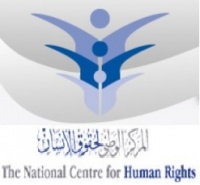Home » Jordan » JOR - News » Jordan: National Human Rights Institution Lacks Necessary Independence from the Executive to Perform its Role
The establishment of a NHRI in Jordan dates back to 2002, when the Royal Commission for Human Rights, created by King Abdullah II two years before, recommended the institution of an independent national human rights body to enhance the protection of human rights in the country. Law No. 51 of 2006 then formally established the NCHR as to guarantee both its independence from the other public powers and its legitimacy before the citizens, in compliance with the Paris principles.
Lack of independence due to members' appointment by Royal Decree
However, the NCHR' independence is undermined by the fact that the King keeps a prominent voice in the appointment of its members. The Board of Trustees – which supervises the NCHR's work – and the Commissioner General – who receives and follows individual complaints – are both appointed by Royal Decree. In addition, the NCHR founding law does not specify any criteria for the eligibility of its members, whereas, in order to ensure its full independence, members should be appointed on the basis of their merit and knowledge of human rights.
Disregard of human rights violations despite a broad mandate
Despite these setbacks, the NCHR abides by the Paris Principles' requirement that NHRIs "be vested with competence to promote and protect human rights" and possess "as broad a mandate as possible," as its annual reports generally include statistics of cases of human rights violations collected and reports on the visits carried out in detention centres.
Nevertheless, Alkarama's report pointed out that these statistics often reflect the non-compliance of Jordanian standards with international human rights law. For instance, the 2010 Annual report mentions that, among the 77 cases of torture submitted to the NCHR, 15 were closed because they were "proven as non violent acts," although the Convention against Torture (CAT), ratified by Jordan in 1991, does not require "violence" is for an act to be qualified as torture. It is hence questionable how the NCHR complaint mechanism could be effective in providing justice to victims of human rights violations.
Additionally, Alkarama noted that the NCHR usually does not intervene in politically-sensitive cases, a selective approach due to the lack of independence of its members. For instance, Alkarama addressed the cases of Bassem Al Rawabedah and Thabet Assaf – two political activists arrested on 16 January 2015 for having organised and participated to a peaceful demonstration against the French journal Charlie Hebdo's cartoons – and the case of Ghassan Mohammed Salim Duar – arbitrarily detained because of his support to the Palestinian cause – to the NCHR but never received a response.
Free access to places of detention not ensured
Furthermore, although Article 8 of Law No. 51 of 2006 provides that the NCHR "may request any information necessary for the realisation of its objectives from the concerned parties, which shall respond without delay to such requests," and Article 10 provides that the NCHR has the right to visit places of detention, it is regrettable to note that the Centre needs previous authorisation from the authorities to conduct such visits.
Lack of transparency
In addition to these setbacks due to the power of oversight the executive keeps over the NHCR, Alkarama also noted that the NHRC's activities are far from being fully publicised so that transparency and public accountability cannot be guaranteed and it is impossible for the public to be aware of the NCHR's activities. For instance, the NHRC's website publishes information on lectures, training sessions, or workshops organised until 2010, while its public reports in Arabic and English are only partly published on the website, missing all the versions between 2010 and 2014.
In light of this information, Alkarama's concluded that "the lack of independence of the NCHR, due, among others, to the appointment of its members by the executive power, strongly undermines its capacity to take a clear and independent stand on sensitive issues, which only adds to a general lack of information on its activities and an ineffective complaints mechanism" and therefore demanded that the NCHR be re-accredited to the ICC with a "B" status to mark its lack of compliance with the Paris Principles regulating the status of National Human Rights Institutions.
For more information or an interview, please contact the media team at This email address is being protected from spambots. You need JavaScript enabled to view it. (Dir: +41 22 734 1008).
 Algeria
Algeria Bahrain
Bahrain Djibouti
Djibouti Egypt
Egypt Iraq
Iraq Palestine/Israel
Palestine/Israel Jordan
Jordan Kuwait
Kuwait Lebanon
Lebanon Libya
Libya Mauritania
Mauritania Morocco
Morocco Oman
Oman Qatar
Qatar Saudi Arabia
Saudi Arabia Sudan
Sudan Syria
Syria Tunisia
Tunisia United Arab Emirates
United Arab Emirates Yemen
Yemen Other Countries
Other Countries







